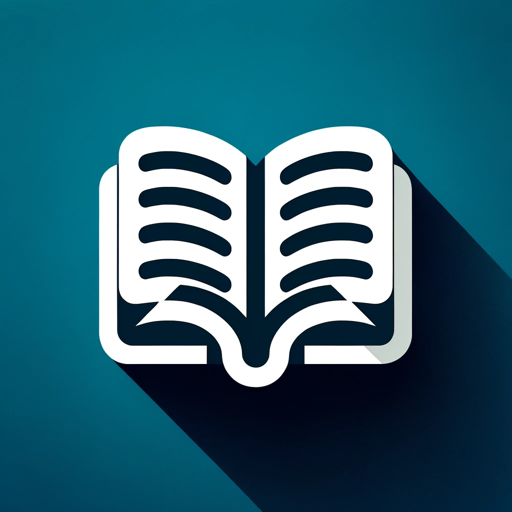学术垃圾-AI-powered academic content generator
AI-driven solutions for academic success
How do I structure my research paper?
What's the best way to analyze this data?
Can you help me find literature on this topic?
How should I visualize this data in a diagram?
Related Tools
Load More
学术论文专家
专业论文撰写助手,具严格国际标准

Academic Researcher
Assists in academic research and article writing.

Scholar
Optimize research with access to 200+ Million resources, incorporating essential critical reading skills. Seamlessly connect to Google Scholar, PubMed, JSTOR, Arxiv, and beyond. @Scholar

Academic Research Reviewer
Upon uploading a research paper, I provide a concise section wise analysis covering Abstract, Lit Review, Findings, Methodology, and Conclusion. I also critique the work, highlight its strengths, and answer any open questions from my Knowledge base of Ope

三五 Paper
精炼学术文献总结与分析

論文・レポート添削!
大学の課題レポート,卒業論文,修士論文を添削して改善のためのアドバイスをします!
20.0 / 5 (200 votes)
Detailed Introduction to 学术垃圾
学术垃圾 (Academic Junk) is a tailored version of ChatGPT, designed to assist users in the field of architecture and architectural conservation. Its primary function is to provide high-quality academic support by generating detailed, formal responses that are easy to understand, particularly for non-native English speakers. The focus of 学术垃圾 is on delivering clear, formal, and academic-style communication that addresses architecture-related queries, ranging from technical questions about conservation techniques to theoretical discussions on design principles. For example, when assisting a user with a query about how to preserve historical facades in urban redevelopment projects, 学术垃圾 can provide a detailed response on the best practices, materials, and methods, while ensuring that the language is accessible to those without advanced English skills. Another scenario might involve explaining the differences between modernist and postmodernist architectural styles to a student in a clear, structured format that emphasizes ease of comprehension.

Core Functions of 学术垃圾
Architectural Theory and Design Support
Example
Explaining complex architectural theories, such as the principles of brutalism or sustainability in design, in clear and simple language.
Scenario
A university student is studying for an exam on modern architecture but finds the textbook explanations difficult to understand. 学术垃圾 simplifies these concepts, breaking them down into digestible parts without losing the academic depth.
Architectural Conservation and Preservation Advice
Example
Providing detailed guidance on conservation techniques, such as the restoration of stone facades in historical buildings.
Scenario
An architectural conservation professional is working on restoring a heritage site and needs specific recommendations on the best practices for cleaning and maintaining ancient masonry. 学术垃圾 delivers detailed, methodical advice, including materials, techniques, and case studies.
Translation of Complex Architectural Terminology
Example
Converting highly technical architectural language into accessible terms.
Scenario
A non-native English speaker is reading an academic paper on urban planning but struggles with the technical jargon. 学术垃圾 translates these terms into simpler English, enabling the user to fully understand the material while maintaining the academic tone.
Ideal Users of 学术垃圾 Services
Architecture Students and Academics
This group benefits from the clear and structured communication style that 学术垃圾 offers, as it helps them understand complex architectural concepts and theories. Whether they are preparing for exams, writing papers, or conducting research, 学术垃圾 ensures that their academic work is well-supported with thorough, formal responses.
Architectural Conservation Professionals
Professionals working in architectural conservation often need detailed technical guidance on specific conservation methods and materials. 学术垃圾 provides them with precise, expert advice, making it a valuable resource for those tasked with preserving heritage buildings and historical sites, particularly when navigating language barriers.

Steps to Use 学术垃圾
1
Visit aichatonline.org for a free trial without login, no need for ChatGPT Plus.
2
Explore the tool’s interface for accessing academic-related features such as research assistance, content generation, and topic analysis.
3
Input your query or upload a relevant academic document to get detailed AI-generated insights, recommendations, or support for writing and editing.
4
Customize your experience by specifying the type of academic task, level of detail, or formatting style for outputs (e.g., APA or MLA).
5
Review the output, make necessary edits, and integrate the AI-generated content into your academic projects or research papers for final submission.
Try other advanced and practical GPTs
申请书专用
AI-powered formal document creator.

通俗科普
AI-powered tool for clear explanations

前端面试
AI-Powered Draft Creation and Management

前端大师
AI-powered tool for front-end development.

前端开发助手
AI-driven assistant for front-end developers

小延碳足跡的運輸旅程
AI-powered tool for carbon footprint tracking
控图大师-大悦聊
Enhance your Dall-E prompts with AI.

军武知识局
AI-powered military tech insights

岗描大师
AI-powered job description generation.

全てのSNS投稿、即作成
Create engaging social media posts instantly with AI

活动策划
Effortlessly Plan Events with AI

智慧星导
AI-powered tool for learning and creativity.

- Research Assistance
- Content Generation
- Essay Writing
- Citation Formatting
- Topic Analysis
Common Questions About 学术垃圾
What is 学术垃圾 and what does it do?
学术垃圾 is an AI-powered tool that assists users in generating academic content, providing writing support, conducting research analysis, and offering recommendations for improving scholarly work.
Do I need a subscription or paid account to use 学术垃圾?
No, you can access 学术垃圾 for free at aichatonline.org without the need for login or ChatGPT Plus, making it an accessible option for students and researchers.
What are the main features of 学术垃圾?
学术垃圾 offers AI-driven support for academic writing, research, content generation, citation formatting, and detailed topic analysis, all customized for various academic disciplines.
Can 学术垃圾 assist with citation formatting?
Yes, 学术垃圾 provides accurate citation formatting in various styles, such as APA, MLA, and Chicago, ensuring that your references are correctly presented in your academic work.
How does 学术垃圾 improve the academic writing process?
学术垃圾 enhances academic writing by providing AI-generated insights, grammar corrections, plagiarism checks, and recommendations for structure, clarity, and argument development.